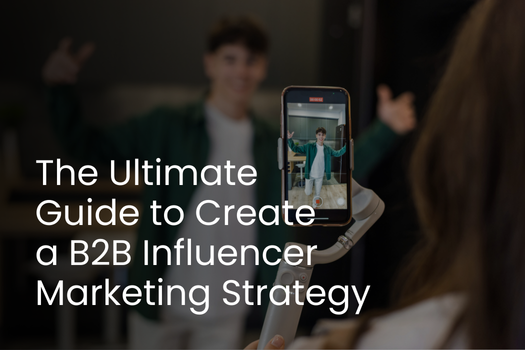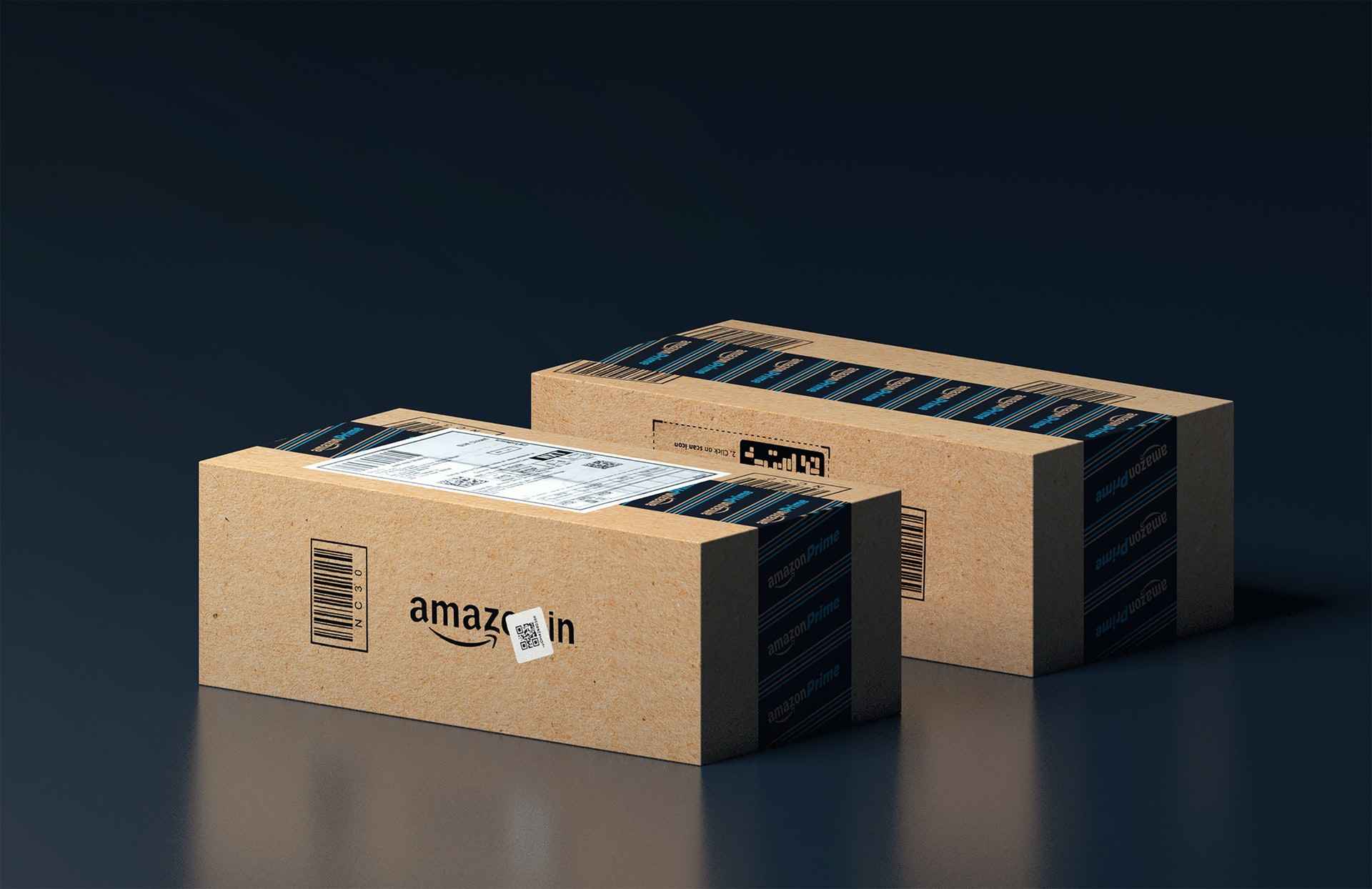Everyone will admit that building relationships with organizational leaders, public figures, and world-class bloggers benefits any business. These connections create new opportunities and help reach a broader audience.
Once seen mostly in B2C spaces, Influencer marketing is now common across all industries.
More and more B2B companies recognize the need to collaborate with influencers with the right authority, audience, and expertise to help them connect with other businesses.
This blog will explore why B2B influencer marketing is essential and guide you through creating an effective strategy with clear goals, detailed planning, and measurable outcomes.
What is B2B influencer marketing?
B2B influencer marketing is a strategy in which businesses collaborate with influential individuals or thought leaders in their industry to promote their products, services, or brands.
Unlike B2C influencer marketing, which often targets individual consumers, B2B influencer marketing focuses on building trust and credibility within a professional audience.
These influencers could be industry experts, executives, consultants, or content creators with a strong presence on platforms like LinkedIn, Twitter, or niche blogs. Their authority and network help amplify a brand’s message, attract potential clients, and establish thought leadership.
The goal of B2B influencer marketing is to create authentic, valuable content that resonates with a target business audience, ultimately driving leads, partnerships, and sales. Partnering with a B2B marketing agency can help you strategically drive leads, build partnerships, and increase sales through impactful influencer collaborations.
Why B2B Influencer Marketing Is Essential in 2025?
According to a Forbes study, over 50% of B2B purchases are influenced by word-of-mouth and recommendations, highlighting the importance of influencers in building authority and driving business growth.
Here are some key reasons why B2B influencer marketing is crucial in 2025:
-
Drives Trust and Authority: Business decision-makers prioritize credibility and expertise. Partnering with respected influencers adds trust to your brand messaging.
-
Targeted Audience Reach: B2B influencers, such as professionals, industry leaders, or decision-makers, have specific audiences that align with your target market.
-
Content Creation and Visibility: Influencers are content creators who help amplify your brand's presence with high-quality, engaging content.
-
Higher ROI: Studies show that B2B influencer marketing delivers better ROI than traditional advertising methods, making it a cost-effective strategy.
-
Greater Engagement: Influencer campaigns often see higher engagement as they leverage the trust and connection influencers have built with their audience.
8 Steps to Build Your B2B Influencer Marketing Strategy
Businesses can amplify their message and reach a highly targeted audience by partnering with respected industry influencers. However, building a successful B2B influencer marketing strategy requires careful planning and execution.
1. Define Clear Goals and Objectives
Every successful campaign starts with a clear purpose. Identify what you want to achieve.
Common goals include:
-
Brand Awareness: Expand your visibility in the market.
-
Lead Generation: Attract qualified prospects to your pipeline.
-
User-Generated Content: Encourage organic testimonials and reviews.
Analyze the gap between where you are and where you want to be. Then, set SMART goals (specific, measurable, achievable, relevant, and time-sensitive) to define the campaign’s success criteria.
2. Establish Key Performance Indicators (KPIs)
Once goals are set, align them with appropriate KPIs to track success effectively. Examples of Goals and KPIs:
-
Increase Brand Awareness: Measure followers, impressions, engagement, and web traffic.
-
Expand Reach: Track new followers, engagement, web traffic, and promo code usage.
-
Drive Pipeline Growth: Monitor sales-qualified leads (SQLs), calls booked, and conversions.
-
Increase User-Generated Content: Count product reviews, testimonials, and social media mentions.
3. Develop Buyer Personas
Understanding your audience is crucial to selecting influencers and crafting relevant content.
Create detailed buyer personas that outline your ideal customer’s pain points, preferences, and online behavior.
For account-based selling, analyze specific businesses you’re targeting. Research the influencers your stakeholders engage with and the platforms they use.
Surprisingly, platforms like YouTube, Facebook, and Instagram play a more significant role in B2B purchasing decisions than LinkedIn, per a 2023 Gartner study.
4. Find the Right Influencers
Selecting the right influencers is crucial for campaign authenticity and success.
-
Niche Expertise: Influencers with specialized knowledge in your industry can create a genuine impact.
-
Micro-Influencers and Nano-Influencers: Smaller influencers often have higher engagement and a loyal following.
Once you find one, build long-term relationships with influencers who share your brand’s vision and audience focus.
According to a study, 56% of CMOs believe long-term influencer partnerships create true brand advocacy. This alignment fosters trust and delivers sustainable results.
5. Collaborate to Create Engaging Content
Work with influencers to co-create content that resonates with your target audience, such as:
-
Co-authored blog posts
-
Podcast interviews
-
Guest appearances in webinars
-
Social media takeovers
-
Product reviews and testimonials
-
Industry event collaborations
Focus on authentic and informative content rather than overly promotional material. This will build trust with your audience and enhance the influencer’s credibility.
6. Leverage Technology and Analytics
Use AI-powered tools and influencer marketing platforms to identify potential collaborators and measure campaign performance.
Tracking Tools:
-
Social media analytics tools for engagement and reach
-
CRM platforms to monitor SQLs and pipeline growth
-
Custom promo codes and trackable links for performance evaluation
7. Build Relationships with Influencers
Influencer partnerships should be mutually beneficial and built on trust.
Ways to Build Stronger Relationships:
-
Fair Compensation: Offer payment, product, or equity to show commitment.
-
Value-Driven Collaborations: Provide opportunities for influencers to grow their brand alongside yours.
-
Regular Engagement: Foster continuous communication and collaboration for ongoing success.
For example, partnering with industry advisors who already trust your brand can extend influence organically. Their endorsements will also encourage other influencers to join your network.
8. Maintain Consistency with “Always-On” Campaigns
Rather than focusing on one-off collaborations, invest in continuous influencer partnerships.
Benefits of Always-On Campaigns:
-
Sustained audience engagement
-
Long-term trust and credibility
-
Higher ROI through continuous visibility
3 Lessons To Succeed in B2B Influencer Marketing
Influencer marketing can yield exceptional results if done right. Here are 3 key lessons to help your strategy stand out:
1. Target the right decision-makers
Conduct proper research before executing your influencer marketing. Many marketers skip this step, leading to poor results. This often happens due to targeting the wrong influencers or insufficient research.
First, focus on understanding your audience rather than just finding influencers. If your goal is business development or content distribution (e.g., on X), ensure the influencers’ audience matches your objectives.
Use tools like Woopra to gather data on users and customers. This data helps create profiles and identify influencers who engage with your target audience. A data-driven approach, or "Reverse Engineering," ensures you target the right people before reaching out.
2. Grab Attention
While sharing and commenting are common, you must do more to stand out. Align your strategy with the influencer’s interests to surprise and engage them effectively.
Guest blogging is a good way to increase exposure. Mentioning your company in blogs or trusted publications helps spread your message. Introduce yourself formally to influencers and explain the benefits of connecting.
3. Multi-Channel Approach
Influencers are active on different platforms, so adapt your approach accordingly.
If one influencer is a blogger and another participates in communities, engage with them differently on each platform. Understand where their attention is and engage based on that.
Follow influencers to events and conferences they attend. Engage meaningfully on social media or via email. To make a lasting impression, only participate in discussions you’re knowledgeable about.
Try to build mutually beneficial relationships with them over time. Focus on long-term engagement instead of quick tactics.
Conclusion
B2B influencer marketing is essential for building trust, authority, and measurable growth for your brand.
By setting clear goals, selecting the right influencers, and focusing on authentic, long-term relationships, you can create campaigns that deliver real results.
Our experts at Saffron Edge help businesses design and execute data-driven influencer marketing campaigns. Whether you need help finding the right influencers or creating a measurable strategy, we’ve got you covered.
The ultimate marketing toolkit
Frequently Asked Questions
How do I know if a B2B influencer is the right fit for my brand?
The right influencer for your brand will have a relevant audience, high engagement rates, and credibility within your industry. Look for influencers whose content resonates with your target audience and aligns with your business goals.
How can I measure the success of my B2B influencer marketing campaigns?
Key metrics to track include engagement rates, website traffic, lead generation, conversion rates, and brand sentiment. Use tools like Google Analytics, LinkedIn, and influencer marketing platforms to measure your campaign’s success.
How do I approach an influencer for a partnership?
Research the influencer's content and engagement to ensure they align with your brand. Then, reach out via email or social media with a personalized message explaining why you believe a partnership would be mutually beneficial.
What types of content can B2B influencers create for my brand?
B2B influencers can create thought leadership articles, product reviews, webinars, podcasts, whitepapers, case studies, and social media posts.
How do I ensure authenticity in B2B influencer marketing?
Collaborate with influencers who genuinely align with your brand’s mission and values. Allow them creative freedom to present your message authentically to their audience.
Drive Leads with Authentic B2B Influencer Marketing
Discover how to create impactful, valuable content that resonates with your target business audience. Partner with a B2B marketing agency to build trust strategically, generate leads, and foster partnerships through influencer collaborations.
Related Blogs
We explore and publish the latest & most underrated content before it becomes a trend.

Subscribe to Saffron Edge Newsletter!

The ultimate marketing toolkit










